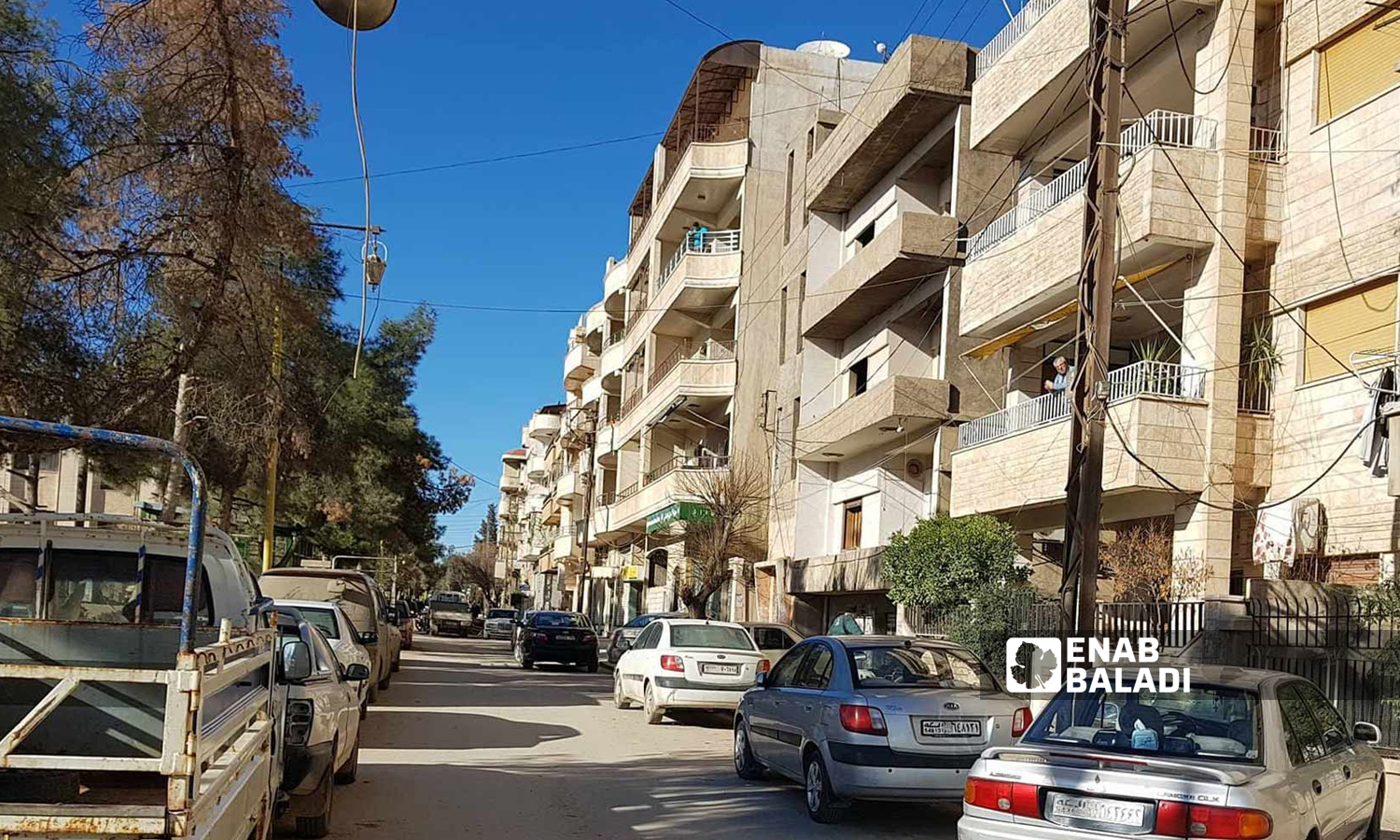



Enab Baladi – Qamishli
Transportation development is one of the most important aspects of urban development in today’s modern life, particularly as production and economic activities are becoming increasingly dependent on the upgrading of road networks and transport services.
Some locals in Qamishli city in al-Hasakah governorate have complained about the increase in transportation costs for all taxis operating along the Souq-Suez Canal neighborhood road and the al-Hizam-National Hospital road, after reaching 500 Syrian pounds (SYP = 14 US cents) per passenger, instead of 300 SYP (12 US cents), amid the absence of better alternatives.
Obaid Jassem, 45, a resident of the Suez Canal neighborhood in Qamishli city in northeast Syria, who works at a restaurant in the city’s central market, told Enab Baladi that he was surprised by the latest increase in taxi fares to almost double.
Jassem added that now he has to pay nearly 30,000 SYP (8 USD) a month, which is a large amount compared to his daily income of no more than 6000 SYP (2 USD).
Despite the rising fares, Jassem is forced to use taxis instead of city buses because they are faster and always available.
Sometimes, Jassem waits for over half an hour to take a bus to his work.
Mohammed al-Suwaid, 62, a resident of Alaya neighborhood, told Enab Baladi that public buses are few and always crowded, especially in the peak period between 1 and 2 p.m. when employees, workers, and school students return home.
As a result, al-Suwaid faces difficulties every time he decides to take the bus to go to the Souq area after most people resorted to buses as an alternative to taxis.
Public transport buses in Qamishli city have been witnessing increasing demand due to their somewhat cheap fares of 200 SYP compared to taxi fares of 500 SYP per passenger.
This, in turn, placed great pressure on the inner city transport service, particularly after passengers were banned from boarding full buses.
Enab Baladi spoke to a number of public bus drivers who confirmed that indeed people are not allowed anymore to stand in buses when they are full, due to previous robbery and sexual harassment incidents.
Fawaz al-Rafea, 50, a taxi driver on the Souq-Suez Canal neighborhood road, told Enab Baladi that “The increase in transportation tariff is necessary due to rising fuel prices and expensive repair costs taxi drivers have to bear. sometimes one repair process requires several months of work to make up the financial losses.”
Al-Rafea takes about 35 percent of the taxi’s monthly income, while the remaining 65 percent goes to the taxi owner. The current increase in taxi fares is helping him make twice the income he used to earn, which is a decent income, he said.
Residents of Qamishli city are suffering from high transportation costs in general, with the least minibus fare reaching 500 SYP (14 US cents) for some roads, like the Suez Canal, al-Hilaliya neighborhood- and al-Corniche.
Meanwhile, the taxi fare within the city is approximately 3500 SYP (about 1 USD), regardless of the proximity or distance of the desired destination, while from the city center to the National Hospital, taxi drivers charge about 5000 SYP (1.4 USD).
As for public buses, they have a fixed fare of 200 SYP per passenger, making it the cheapest fare in the city. However, there is a shortage in bus numbers made worse by the recent rise in transportation costs.
The city of Qamishli has 19 public buses operating on three roads between the city center and its surrounding neighborhoods.
if you think the article contain wrong information or you have additional details Send Correction